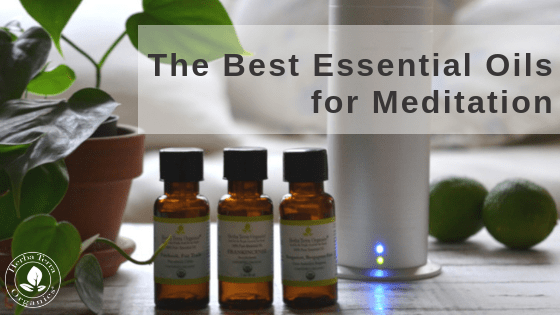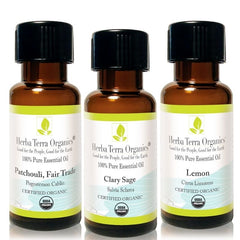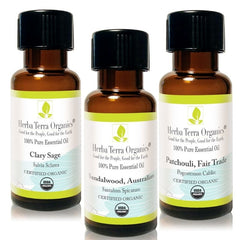Gr Meditation has been a popular practice that dates back for millennia; its various techniques are intended to encourage a heightened state of awareness and focused attention. Meditation used to be used for religious purposes back in the past, but today many people practice it independently of any religious or spiritual practices. (1)
Meditation can be used to get more grounded and more clarity, help with several spiritual and emotional issues, plus it has many health benefits such as lowering blood pressure, releasing anxiety, and calming the nerves just to name a few. NCCIH funded a study that concluded that meditation, “can affect activity in the amygdala.” This is the part of the brain that assists with processing emotions. The study also showed that different meditation types affect amygdala differently even when there is no meditation happening, which implies the benefits linger also AFTER the meditation. (2)
Another study of 50 avid meditators and 50 non-meditators was conducted and the research showed that the individuals who practiced meditating had more folds on the outer layer of their brains. This means that they are able to process information more effectively than the 50 people who do not practice meditation. (2)
Among many health benefits, meditating can help you focus and keep your brain young, which is the reason why there's also an increasing number over the last couple of years in CEO's of large companies who meditate on the daily. (8), (9)
HOW TO MEDITATE
There are many ways in which you can meditate, and it may take a while to find what method works best for you, so make the commitment to experiment different techniques until you find what resonates with you. No size fits all, so find the one that works for you.
When meditating it is very beneficial to find a comfortable position in a quiet location that is free from distractions so that you can focus and meditate more effectively. Doing small things to avoid distraction such as silencing your phone and making yourself comfortable before you begin can make a huge difference in your meditation experience.
It doesn't have to be difficult at all, you could just simply close your eyes while trying NOT to think of anything. I know it sounds easier than it is, and it's true, it's not easy to meditate especially when you start, but with practice, you'll get better at it.
Meditation is not a sprint but a marathon, and when you start just aim for 5 minutes and if you aren't able to clear your mind for 1-2 minutes without any thoughts you may want to extend it for another 5-10 minutes. If you weren't able to quiet your mind at all during the first 15 minutes, just get up and go on with your day, and start over the next day.
You don't have to meditate for hours, most of the time 15-20 minutes is enough to make you feel better. The most important thing is to be consistent and do it every day, and that's the only way you'll see results over time. Don't expect results over night, they will happen gradually but they're long lasting and well worth the effort.
The numerous benefits of meditation have been proven in many studies, and now even therapists and doctors recommend it for mental wellness. If you've tried it before without any results and gave up because you just couldn't free up your mind of thoughts, I encourage you to try again --but do it differently this time. If you want different results you must try something different, right?
ESSENTIAL OILS AS ENHANCING TOOLS FOR MEDITATION
For the vast majority of people, meditation is NOT easy, and essential oils could help you relax easier into a higher state of mind and free your mind, according to research.
One of the best and easier ways to help you enter a meditative state and be more present while you’re meditating is to diffuse certain essential oils that could help you focus on nothingness and relax at the same time, and get into a deeper state of mindfulness. You can use a single oil or create your own blend.
The essential oils used for meditation have different properties that can clarify different matters of the mind, body, and spirit by changing our brain chemistry when diffused. Inhaling their aromas during the meditation session can help you focus more on the issues that you want to address.
Some of the most popular essential oils used for meditation are Basil, Cedarwood, Frankincense, Clary Sage, Lavender, Patchouli, Rosemary, Sandalwood, Vetiver, and Helichrysum. Each of these oils is used to address various spiritual, mental, and emotional blockages.
Basil oil is best to increase positivity, concentration, deciveness, trust, integrity, enthusiasm, clarity and cheerfulness. Use it to conteract these negative traits: indecision, mental/intellectual fatigue, mental exhaustion, negativity, lack of direction, frea, burnouts, confusion, resentment, addictio, conflict, doubts, fear of intimacy.(6)
Cedarwood oil is best to increase inward focus, concentration, grounding, confidence, balance, stability, and comfort. You can also use it to counteract these negative attributes: scattered thoughts, worry, fear, too much analytical thinking, irrationality, fixation on past, and anxiety. (6)
Frankincense can be used to control fear, blockages, anxiety, disconnection, repression, and resistance, by increasing one’s feelings of courage, resolution, inspiration, and acceptance. This oil also increases one's faith and ability to connect to the higher self. (6)
Clary Sage has a sharp, musky aroma and is great for grounding, confidence, inspiration, setting new goals and intentions, balance, as well as counteracting stress, tension, worry, anxiety, and fear which can help you become calmer. (7)
Lavender is exceptional if you need to get more security, acceptance, inner peace, emotional balance, and visualization. It’s great for when you deal with stress, tension, fear, insecurity, distraction, and worry. However, you may want to use Lavender rather at night for meditation because it will make you sleepy as its chemical compounds have the power to relax the nervous central system and induce sleep. (3),(4), (5)

Diffusing Patchouli essential oil during a meditation session will help with grounding, anxiety, indecision, tension, and stress. It also has the ability to awaken the awareness for those feeling confused at a spiritual level and gain more clarity about yourself. (6)
Another great oil for meditation is Rosemary which is deeply restorative and centering and allows those with blockages concerning confidence, creativity, clarity, structure, concentration, disorientation, fatigue, and emotional exhaustion to relieve themselves of these stressors. (7)
The exotic Sandalwood essential oil has an earthy, warm aroma that is known to increase feelings of enlightenment, balance, connection, serenity, peace, calmness, clarity, insightfulness, and unity. It can help one counteract some negative attributes such as nervous tension, accepting, insecurity, distress, irritable moods, and dwelling in the past. Sandalwood is quite grounding and it has the ability to heal emotional and spiritual wounds by opening the heart and encouraging trust. (6)
Dubbed as the “fragrance of the earth” and produced from the roots of a tropical grass, Vetiver oil has a pronounced earthy, musty, rich scent. It has been long used in meditation and as a powerful aid for the nervous system due to its deeply restorative and grounding effect. When used, it enhances calmness, growth, mind-body connection, and self-esteem. It’s very useful when addressing feelings such as fear, anxiety, overwork, fatigue, scattered thoughts, emotional burnout, mental exhaustion, self-worth, loss of purpose, disconnection, emotional blockages, and instability. (6)
In addition to its amazing unique health benefits, healers and shamans in different cultures have been using Helichrysum to induce visions and trance states to provide healing to the soul and psyche for thousands of years.
By now, you can see these essential oils all have their own unique properties that can make each of them useful even when used alone, which is why they are the most popular. If you are looking to try something new, there are other essential oils that can be used for meditation such as Bergamot, Basil, Cardamom, Eucalyptus, Ylang-Ylang, Juniper Berry, Geranium, Grapefruit, Lemon, and Orange.
Bergamot oil has a light, citrusy aroma which makes this oil good for increasing one’s feelings of security, direction, comfort, and motivation while eliminating the fear of change, emotional blockages, confusion, disorientation, fatigues, indecision, irrationality, frustration, and mental exhaustion. (6)
Cardamom helps with increasing feelings of purpose, courage, and confidence, and it’s also good for mental stress, confusion, concentration, direction, and motivation. (6)
Diffusing Eucalyptus during meditation will take care of any lack of concentration, cluttered and irrational thoughts, or emotional imbalance.
The exotic aroma of the Ylang-Ylang essential oil is very meditative and can be used to calm the nerves, increase self-confidence, awaken, and uplift the spirit. Being that is the most powerful natural aphrodisiac, its joyful and sensual attributes make this oil ideal for anxiety, tension, stress, frustration, irrationality, and shyness. (7)
Juniper Berry is meditative and uplifting, helping with self-worth, dissatisfaction, and conflict. It makes you feel more supported spiritually and more at peace by increasing your inner vision.
Diffusing Geranium while you meditate will assist in decreasing confusion, insecurity, tension, stress, irrationality, and worry. In addition, this oil is good for balancing, reassuring, and stability.
The fresh and citrusy invigorating aroma of Grapefruit essential oil will enable you to get some clarity, more joy, positivity, confidence, balance, and inspiration. It will also help you overcome self-doubt, self-criticism, depression, dependency, grief, and frustration as it has the power to uplift your spirit, cheer you up, and energize you.
The Lemon oil will support you with finding direction, calm, concentration, clarity of thought, and help one to reconcile issues with indecisiveness, stress, irrationality, mental blocks, and fear, while Orange oil will leave you feeling more balanced, creative, positive, self-confident, and courageous while simultaneously warding off anxiety, worry, and burnout. (6)

You don’t have to choose just one oil while meditating. You can find a few that go together and create your own aromas to your preference. The best way to use these oils together is to blend them properly so be sure to check our product page for each oil on our website under the section Aromatic Profile and Blending which will tell you which oils are best to blend together.
Blending oils ONLY for the sake of creating a scent you love is NOT going to benefit you; essential oils contain natural and powerful chemical compounds and just like any medicine, not all oils can be mixed with just any oil as some oils compounds will cancel other oils’ benefits or interact negatively with others, altogether.
Our website contains reliable information regarding which oils are best blended together. While our list is not a complete list of all the blend combinations for all oils, it sure includes the best blends combinations for each oil for the most therapeutic effect.
However, if you don’t feel like going through the trouble of making your own blends, no worries, we have created a few recipes that you can use.
MEDITATION BLEND RECIPES
Here are some blends to consider:
Grounded Meditation Blend
- Pachouli– 30 drops
- Clary Sage – 30 drops
- Lemon – 30 drops
Clarity Meditation Blend
- Patchouli – 20 drops
- Basil – 30 drops
- Grapefruit – 30 drops
Calm Meditation Blend
- Clary Sage – 30 drops
- Lemon–20 drops
- Ylang Ylang – 30 drops
Choose your favorite blend, mix the oils together in a bottle, and diffuse with your nebulizer. You can use any of these recipes at any point throughout your day or while you’re meditating. When you are meditating focus on your breathing and on the feelings you want to feel at the end of your meditation session: relaxed, confident, energized, loving, trusting, grateful, etc, etc. Breath slowly to allow the aromas of the essential oils to positively affect your brain chemistry and put you in a higher state of mind.
A small but important detail that needs to be mentioned here is that besides the quality of essential oils you use how you diffuse your oils is equally important for the success of your meditation practice. (We only recommend using USDA CERTIFIED ORGANIC oils to avoid inhaling all the artificial fertilizers and the pesticides sprayed on conventional crops.)
Using a nebulizer that uses strictly oils without any water as opposed to the typical diffusers that use water (to water down the oils, if you want to know) will highly improve your meditation practice and the effects of essential oils on your brain, and your health. Learn more here why you should always consider a nebulizer instead of a diffuser.
Besides the meditation benefits, you can find more information on each individual oil and their health benefits by searching each oil on our site.
Grab these meditation blends here:
Grounded Meditation Clarity Blend Calm Meditation
References:
1. Meditation used in religious practices https://www.news-medical.net/health/Meditation-History.aspx
2. Meditation and effects on brain https://nccih.nih.gov/health/meditation/overview.htm
3. Lavender as a sleep aid http://healthpsych.psy.vanderbilt.edu/2009/LavenderSleep.htm
4. An olfactory stimulus modifies nighttime sleep in young men and women https://www.ncbi.nlm.nih.gov/pubmed/16298774
5. Effect of Inhaled Lavender and Sleep Hygiene on Self-Reported Sleep Issues: A Randomized Controlled Trial https://www.ncbi.nlm.nih.gov/pubmed/26133206/
6. The Fragrant Mind -Aromatherapy for Personality, Mind, Mood, and Emotion by Valerie Ann Worwood
7. The Complete Book of Essential Oils & Aromatherapy by Valerie Ann Worwood
8. Zanesco, A.P. et al (2018). Cognitive Aging and Long-term Maintenance of Attentional Improvements Following Meditation Training, Journal of Cognitive Enhancement DOI: 10.1007/s41465-018-0068-1
9. Forbes.com - Expert Says Meditation Is On The Rise Among C-Suite Executives




